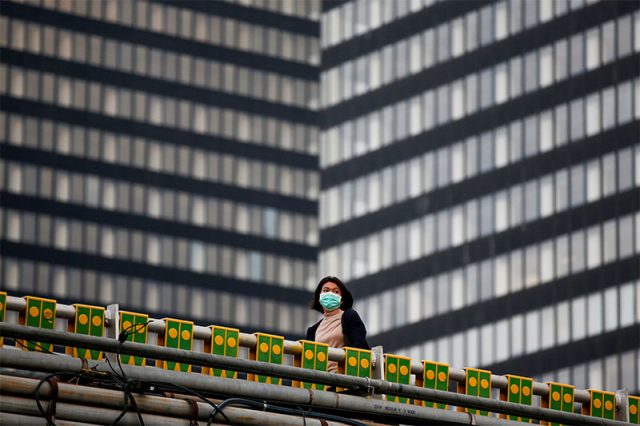
LONDON (Thomson Reuters Foundation) — Plans to rebuild shattered economies after the new coronavirus pandemic offer a chance to create greener, fairer societies amid growing anger worldwide at rising inequality, the civil society group CIVICUS said on Thursday.
The crisis has deepened and laid bare economic inequalities, with many essential roles such as food delivery and medical care undertaken by people with low pay, job insecurity and few social safety nets, the international civic action organisation said.
“This is really a turning point,” chief programmes officer Mandeep Tiwana told the Thomson Reuters Foundation in an interview from New York, adding that desperation could boil over into unrest if action was not taken.
“People are both hungry and they are angry … it’s absolutely critical that decision-makers at this time make sure those who are facing the most deprivation are kept first in mind.”
More than a billion workers, many of whom are low-paid, could lose their jobs to the pandemic, the International Labor Organization warned last month.
CIVICUS said that any attempts to reassert austerity policies or prioritise the needs of big business in recovery must be avoided as the impacts would hurt those who have already suffered the most.
It also called for action to combat climate change, including by encouraging people to continue to work in ways that reduce carbon footprints and by developing green proposals to promote sustainable production, consumption and jobs.
Protests in 2019 already showed a clear trend in calling for fairer economies, CIVICUS said in its annual report, drawing on 50 interviews with civil society activists and leaders from around the world.
Many demonstrations were triggered by economic pressures – from transport costs in Chile to fuel prices in Zimbabwe – but grew into wider campaigns against inequities and corruption, said researchers.
Separately, campaigners called for global reforms to block corporations that use tax havens from receiving COVID-19 bailouts and to ensure that developing countries earn the revenues they need to finance their recovery from coronavirus.
“There are choices to be made,” Susana Ruiz, co-chair of The Independent Commission for the Reform of International Corporate Taxation, which was set up by a coalition of charities in 2015 to campaign for tax reforms.
“And those choices can lay the foundation for a more equal, feminist and sustainable world or they can accelerate inequality,” she told the “Health versus Wealth?” online forum. —Reporting by Sonia Elks @soniaelks; Editing by Katy Migiro









